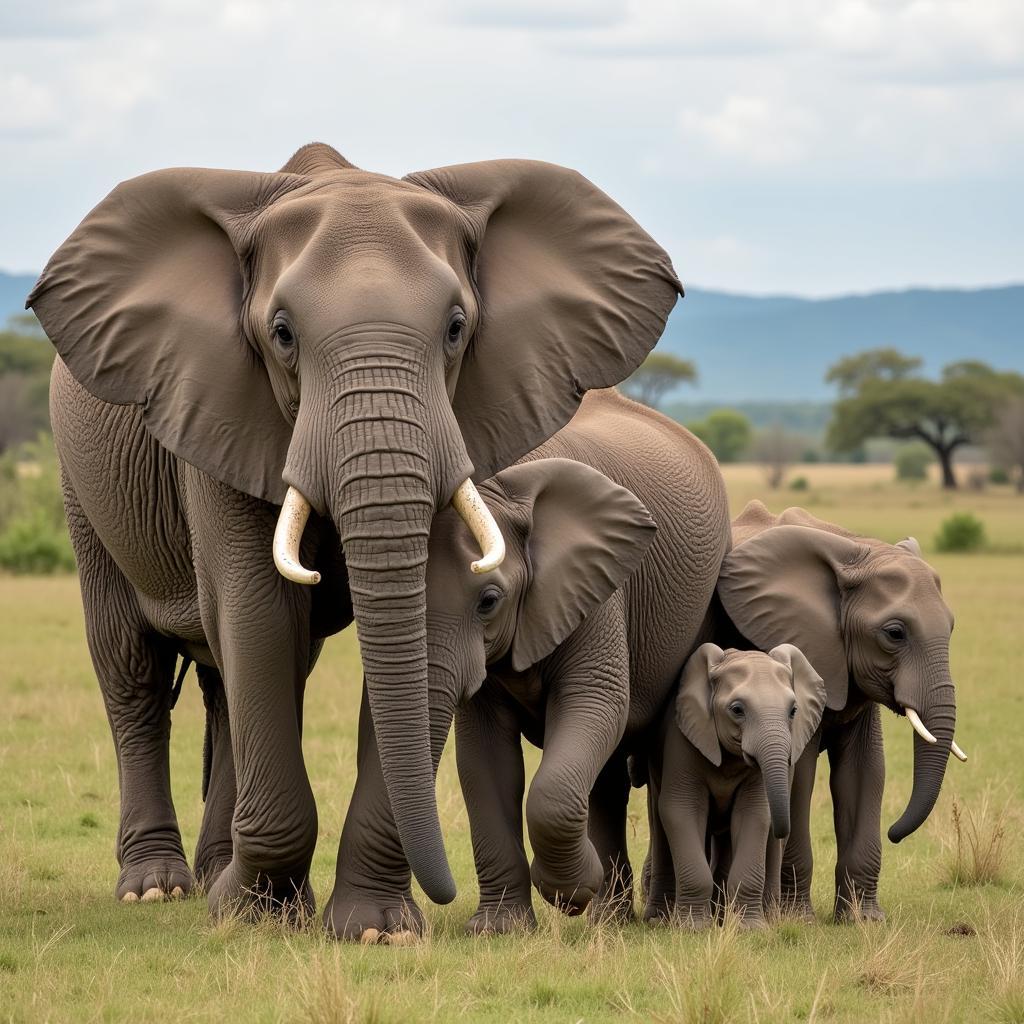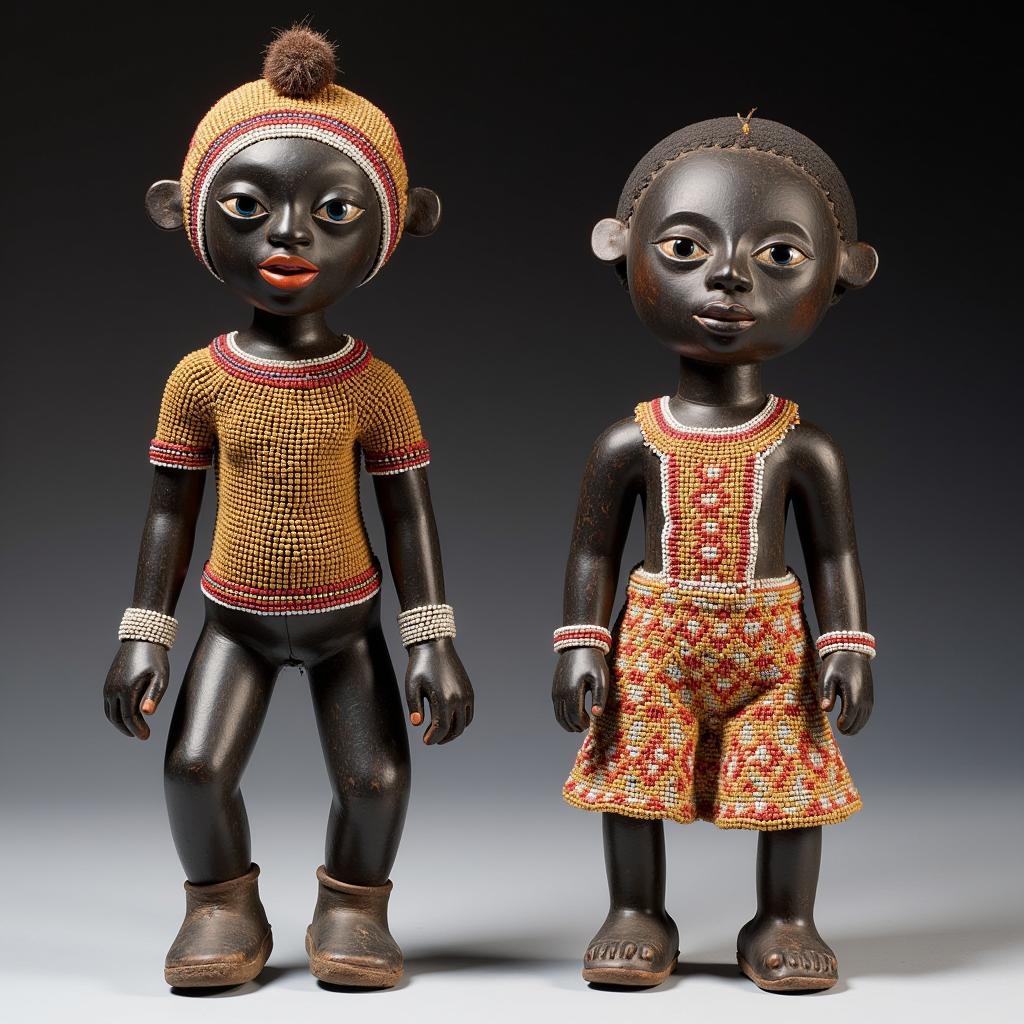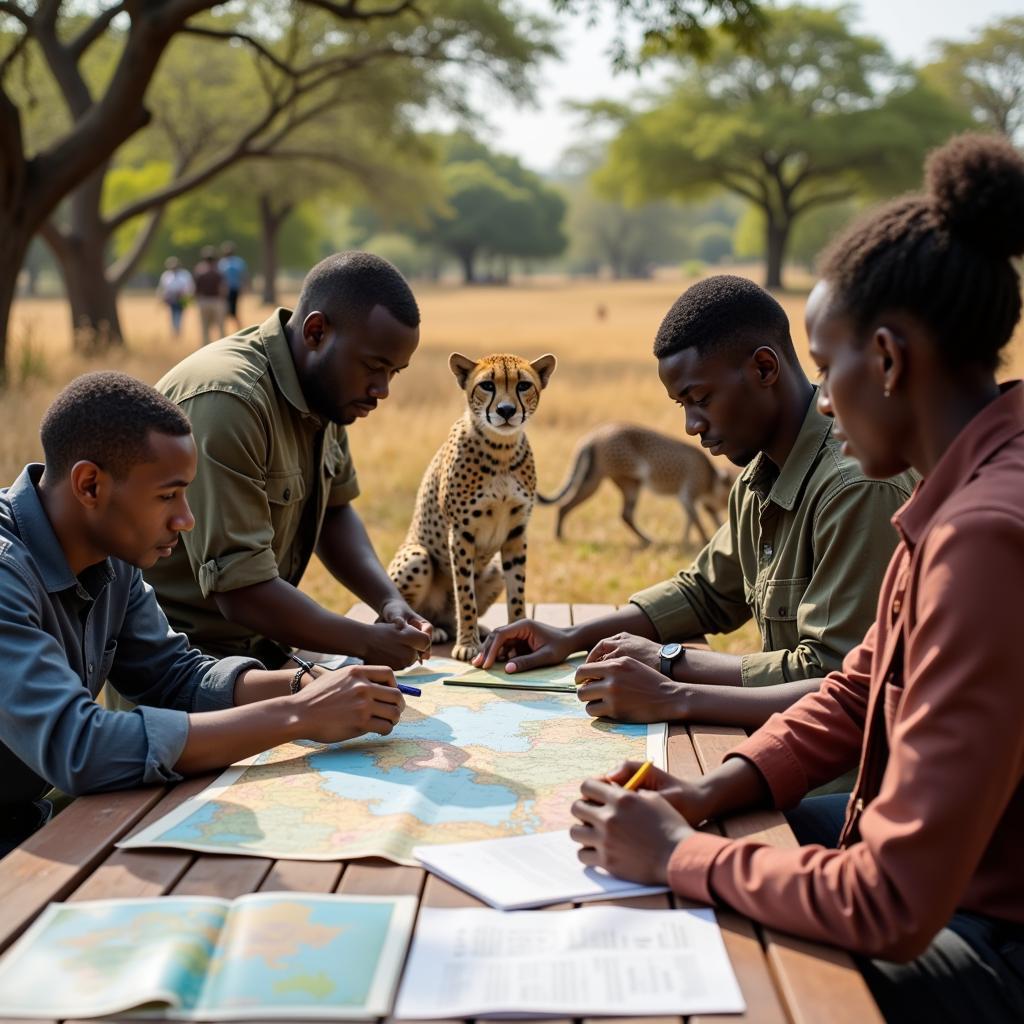African Elephant Life Expectancy: A Deep Dive
African Elephant Life Expectancy is a fascinating topic that reveals much about these majestic creatures and the challenges they face. In the wild, African elephants can live for a surprisingly long time, rivaling human lifespans in some cases. However, numerous factors influence their longevity, from environmental pressures to human interference. Let’s delve into the intricacies of their lifespan and explore the factors that shape it.
Understanding the African Elephant Lifespan
The average African elephant life expectancy in the wild is around 60-70 years. This can vary depending on whether it is a bush or forest elephant, with bush elephants typically living slightly longer. However, this lifespan isn’t guaranteed. Many elephants don’t reach this age due to various threats. Factors such as poaching, habitat loss, and disease can significantly shorten an elephant’s life. Understanding these factors is crucial for effective conservation efforts. This lifespan, while impressive, is constantly under threat. Think about it – living for several decades, roaming vast landscapes, witnessing generations come and go. It’s a remarkable existence, but one fraught with peril.
For instance, access to water sources plays a critical role, especially during dry seasons. Elephants require vast quantities of water daily, and competition for dwindling resources can severely impact their survival. Similarly, the availability of nutritious vegetation directly influences their health and longevity. An elephant’s diet consists mainly of grasses, leaves, bark, and fruits, and a lack of these essential nutrients can lead to malnutrition and weakened immune systems, making them vulnerable to diseases.
Threats to African Elephant Longevity
Sadly, human activities pose the most significant threat to African elephant life expectancy. Poaching for ivory remains a persistent problem, decimating elephant populations and disrupting their social structures. Habitat loss due to expanding human settlements and agriculture further restricts their range and access to vital resources. These human-induced pressures significantly reduce the average lifespan of elephants in the wild. Isn’t it tragic that these magnificent creatures, who have roamed the earth for millions of years, are facing such immense challenges due to our actions?
Beyond poaching and habitat loss, human-wildlife conflict is another significant issue. As human populations grow and encroach upon elephant territories, encounters between elephants and humans become more frequent. These encounters can result in crop raiding by elephants, leading to retaliatory killings by farmers. The African animal ratel, although much smaller, can also pose a threat to young elephants. More information about this fascinating creature can be found on african animal ratel.
How Human Activities Impact Lifespan
Human activity dramatically alters the natural landscape, fragmenting elephant habitats and disrupting their migratory patterns. This fragmentation leads to isolated populations, reducing genetic diversity and increasing their vulnerability to disease outbreaks. Moreover, the stress caused by human encroachment and the constant threat of poaching can weaken their immune systems, making them more susceptible to illnesses. The consequences of human actions ripple through the elephant population, impacting not only their physical health but also their social dynamics and overall well-being. You can delve into the elephant’s lifespan in african elephant lifetime.
Dr. Naomi L. Mwangi, a renowned wildlife veterinarian specializing in elephant health, explains, “The physiological toll of constant stress, driven by human pressures, significantly weakens the elephant’s immune response, leaving them more vulnerable to diseases which can drastically shorten their lifespan.”
Protecting the Future of African Elephants
Conserving African elephants requires a multifaceted approach. Strengthening anti-poaching efforts, protecting and expanding their habitat, and promoting sustainable land-use practices are crucial. Educating local communities about the importance of elephant conservation and fostering peaceful coexistence between humans and elephants is also essential.
Conservation Efforts and Their Impact
Numerous organizations are working tirelessly to protect African elephants and ensure their long-term survival. These efforts include anti-poaching patrols, community-based conservation initiatives, and research programs focused on understanding elephant behavior and ecology. By supporting these initiatives and raising awareness about the challenges facing African elephants, we can all contribute to securing a future for these magnificent creatures. Learn more about the different types of African elephant teeth, which are often the target of poachers, at african elephant teeth type.
Prof. Abasi K. Olufemi, a leading expert in African elephant conservation, emphasizes, “The future of African elephants depends on our collective commitment to protecting their habitat, combating poaching, and promoting coexistence between humans and wildlife.”
 African Elephant Family in Protected Area
African Elephant Family in Protected Area
Conclusion
African elephant life expectancy is a complex issue intertwined with environmental and human factors. While they can live for several decades in ideal conditions, threats such as poaching and habitat loss significantly shorten their lifespan. By understanding these factors and supporting conservation efforts, we can help ensure that these magnificent animals continue to roam the African savannas for generations to come. Understanding the population dynamics of African countries also provides valuable context. Check out african countries 2017 population.
FAQ
-
What is the average lifespan of an African elephant?
- 60-70 years in the wild.
-
What are the main threats to African elephant longevity?
- Poaching, habitat loss, and human-wildlife conflict.
-
How does human activity impact elephant lifespan?
- It causes stress, habitat fragmentation, and increased disease vulnerability.
-
What can be done to protect African elephants?
- Strengthen anti-poaching efforts, protect habitat, and promote sustainable land use.
-
Why is it important to conserve African elephants?
- They are keystone species, crucial for maintaining healthy ecosystems.
-
How does habitat loss affect elephants?
- It restricts their range, reduces food and water availability, and increases conflict with humans.
-
What are the long-term consequences of poaching?
- It decimates populations, disrupts social structures, and impacts genetic diversity.
Common Situations and Questions
- Situation: You see an injured elephant. Question: What should you do?
- Situation: You encounter an elephant while on safari. Question: How should you react?
- Situation: You want to support elephant conservation. Question: How can you get involved?
Further Exploration
Explore more about related topics on our website, such as elephant social structures, the impact of climate change on elephant populations, and the role of ecotourism in conservation.
Contact Us
For assistance or inquiries, please contact us via Phone: +255768904061, Email: kaka.mag@gmail.com, or visit our address: Mbarali DC Mawindi, Kangaga, Tanzania. We have a 24/7 customer service team available to assist you.



